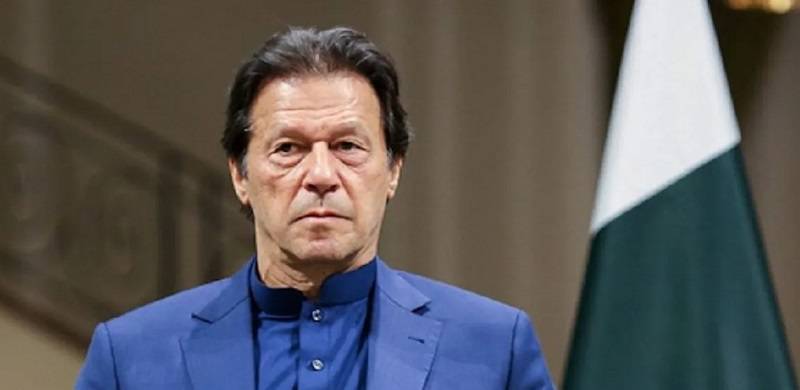
Pakistan launched its first-ever National Security Policy (NSP) earlier this year, which purports to be citizen-centric and claims that the country changed its geostrategic policy into geoeconomics. The document of the NSP explicitly states that Pakistan will build its relations with all nations based on mutual gains and economic interests without being part of any bloc politics. The agenda and manoeuvring of the NSP based on human security and national interests is impressive, but actions on the ground are different.
The prime minister of Pakistan is continuously criticising the USA and the West on past events and opining that “the West used Pakistan to clean the 'mess' in Afghanistan.” Moreover, he has also harshly rebuked the USA for drone attacks in Pakistan.
After the withdrawal of American forces from Afghanistan, the regional dynamics of politics are altered, and the US interests have shifted from the Middle East to the Pacific Ocean. And now America wants to contain China in the South China Sea and to stop China as a new emerging superpower. For this the US policymakers prefer India over Pakistan to promote their interests in the region. For Pakistan, it is difficult to balance relations between two big giants but not impossible. Pakistan has already cooperative and close relations with China, while the US and Pakistan are old economic partners. And Pakistan was an ally of Washington in the Cold War and the War on Terror.
To establish ties with the US based on a win-win game, Pakistan needs diplomatic efforts to boost relations based on an understanding of mutual interests. Already the US is our largest trade partner, to which we export goods worth $4 billion per year, while we import goods from the US worth $2.5 billion a year.
The quick withdrawal of the US forces from our neighboring country without a political solution created security threats for Pakistan. The situation is worsened when the US blames Pakistan for its failures in Afghanistan. BUt Pakistan's prime minister alleges that the US wanted to remain in the region and sought help from Pakistan for providing military bases, to which he claims to have replied with the now notable phrase, “Absolutely not.” This approach has created uncertainty and distrust on both sides, affecting bilateral relations.
The necessity of the hour is to stop populist rhetoric from the Prime Minister of Pakistan, while the US has to adopt a policy of non-interference and mutually beneficial ties.
Intentions as laid out in the National Security Policy document are all about remaining neutral to maximise the pursuit of national interests. But on the ground, open denunciation of the US and the West will not work if we want to achieve the goals laid out in the NSP. Diplomacy has some norms and values. If Pakistan has resentments and grievances with the USA or the West, it should use a diplomatic platform to address the issues.
Our economic condition and overall strategic situation do not permit populist rhetoric from our side.
The prime minister of Pakistan is continuously criticising the USA and the West on past events and opining that “the West used Pakistan to clean the 'mess' in Afghanistan.” Moreover, he has also harshly rebuked the USA for drone attacks in Pakistan.
After the withdrawal of American forces from Afghanistan, the regional dynamics of politics are altered, and the US interests have shifted from the Middle East to the Pacific Ocean. And now America wants to contain China in the South China Sea and to stop China as a new emerging superpower. For this the US policymakers prefer India over Pakistan to promote their interests in the region. For Pakistan, it is difficult to balance relations between two big giants but not impossible. Pakistan has already cooperative and close relations with China, while the US and Pakistan are old economic partners. And Pakistan was an ally of Washington in the Cold War and the War on Terror.
To establish ties with the US based on a win-win game, Pakistan needs diplomatic efforts to boost relations based on an understanding of mutual interests. Already the US is our largest trade partner, to which we export goods worth $4 billion per year, while we import goods from the US worth $2.5 billion a year.
The quick withdrawal of the US forces from our neighboring country without a political solution created security threats for Pakistan. The situation is worsened when the US blames Pakistan for its failures in Afghanistan. BUt Pakistan's prime minister alleges that the US wanted to remain in the region and sought help from Pakistan for providing military bases, to which he claims to have replied with the now notable phrase, “Absolutely not.” This approach has created uncertainty and distrust on both sides, affecting bilateral relations.
The necessity of the hour is to stop populist rhetoric from the Prime Minister of Pakistan, while the US has to adopt a policy of non-interference and mutually beneficial ties.
Intentions as laid out in the National Security Policy document are all about remaining neutral to maximise the pursuit of national interests. But on the ground, open denunciation of the US and the West will not work if we want to achieve the goals laid out in the NSP. Diplomacy has some norms and values. If Pakistan has resentments and grievances with the USA or the West, it should use a diplomatic platform to address the issues.
Our economic condition and overall strategic situation do not permit populist rhetoric from our side.

